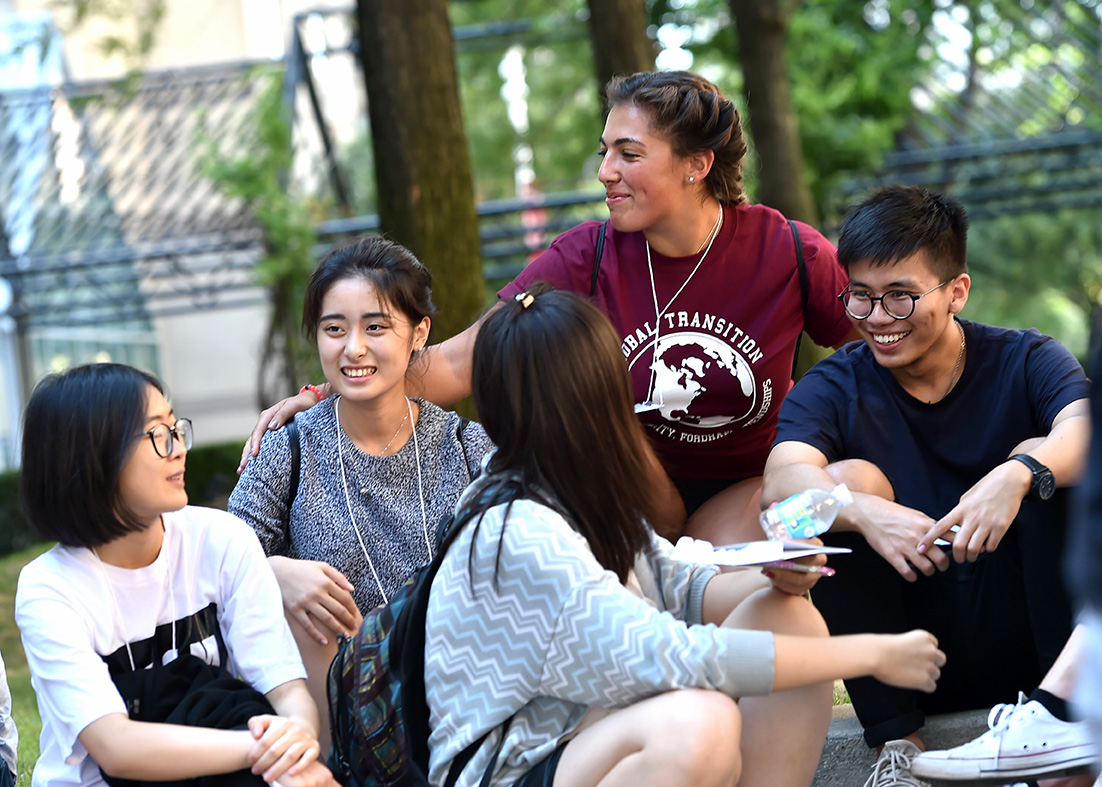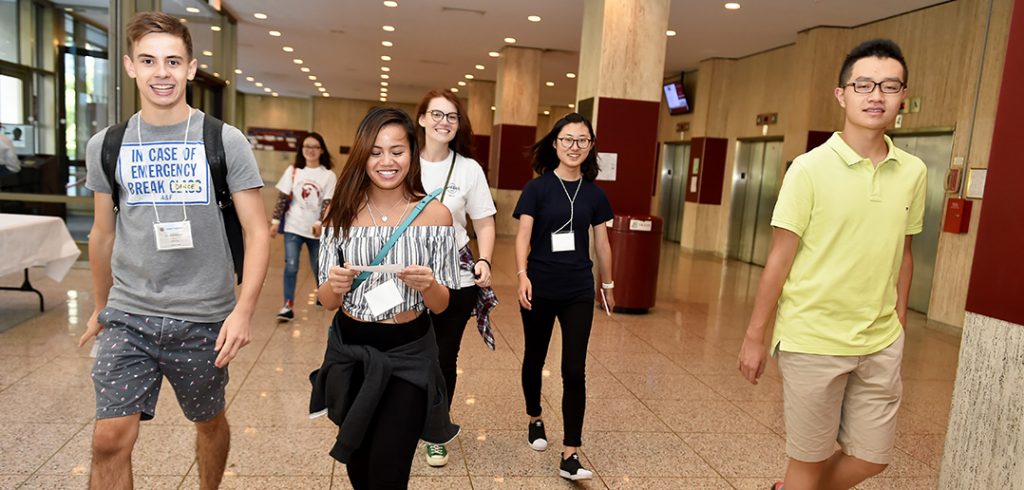More than 300 students—including new freshmen, transfer students, exchange students, and American citizens who went to high school abroad—participate in the Global Transition program.
“It’s a great way to get to know the campus and other people, and to get help with all sorts of questions, such as immigration and visas,” said student leader Gladys Bendahan, a rising sophomore who participated in the program last year when she arrived from the Canary Islands.
“We are here to tell them that we all go through the same situation, that it’s normal to be nervous or to be homesick,” she said. “And to let them know they’re going to have an amazing experience.”
Of the total Global Transition participants, 207 are new freshmen members of the Class of 2020, making for the largest cohort of international incoming freshmen in Fordham history. As the University welcomes increasingly more students from around the world, the program is critical to helping students make the move to Fordham, said Monica Esser, director of international enrollment initiatives.
“We encourage the new international students to feel confident in their new surroundings, step out of their comfort zones and take advantage of all the opportunities Fordham has to offer,” Esser said. “Global Transition helps to create a supportive set of social connections for students to do all this—and to fully embrace the Fordham experience.”

Photo by Dana Maxson
The initial day of Global Transition was dedicated to moving in and helping the students get to know one another. In the following days, the group attended information sessions on topics such as cultural adjustment, health and wellness in the U.S., and Jesuit mission and identity.
There has also been plenty of time for fun, however—the group has taken trips to various New York City sites and participated in a scavenger hunt around the Lincoln Center campus.
“I don’t know if I’m just feeling this way now, or if the homesickness will hit later, but I feel like we’re already home,” Paula Najas, a new first-year student from Ecuador, said shortly after her team won the campus scavenger hunt.
Her teammate Jaissal Shalgolsen, from India, agreed.
“I always thought New York was a busy city and people had no time for each other. But here there’s been a community already set up and they’re here to welcome us and it feels like home already,” he said. “I was a tourist before, but now I’m settling down here and Global Transition has helped me to settle down really fast.”
An important component of Global Transition, said Esser, is the Global Transition Parent Program, which invites the families of international students to participate in a variety of activities while the students are orienting. Activities include a tour of the Metropolitan Museum of Art with Fordham faculty and a reception with Joseph M. McShane, S.J., president of Fordham.
“We found the families of new international students—who may only travel the often long distance to Fordham for move in and commencement—eager for interaction with each other and the Fordham community,” Esser said.
“Of course, dropping your child off across the world feels better when you know members of their community and the families of their new friends.”

